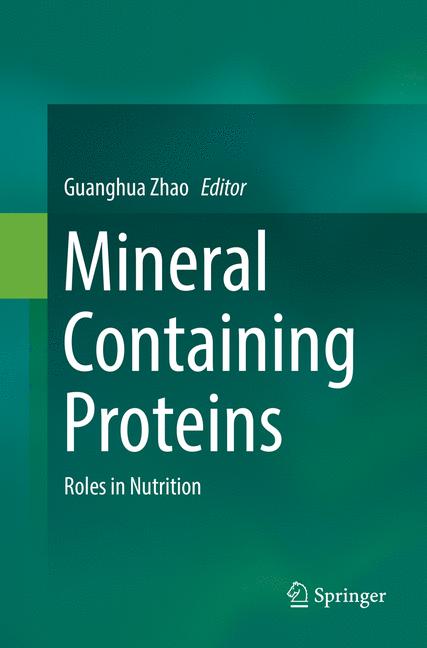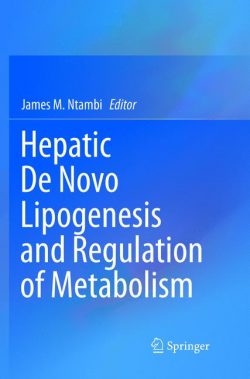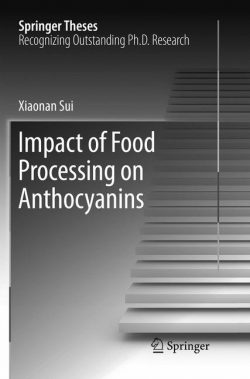This book describes the structure, function and nutritional values of iron-, zinc-, selenium- and calcium-containing proteins, exploring key mineral-containing proteins like phytoferritin and lactoferrin, as well as a host of zinc- and selenium-containing proteins. Due to their role in numerous metabolic processes, minerals such as calcium, iron, zinc and selenium are vital, and have to be obtained from a balanced diet because they cannot be synthesized. The structure and function of mineral-containing proteins influences the absorption of these essential minerals. As such, the study of these proteins is crucial for the assessment and maintenance of a balanced diet and for the development of effective mineral supplements. The book’s closing chapters focus on issues arising from current food processing techniques and in the development of mineral supplements. The book offers a valuable guide for researchers and students in the fields of food chemistry and nutrition.
Chapter 1 Structure, function, and nutrition of ferritin from foodstuffs.- Chapter 2 Structure, function, and nutrition of lactoferrin.- Chapter 3 Structure, function, and nutrition of zinc-containing proteins in foodstuffs.- Chapter 4 Structure, function, and nutrition of selenium-containing proteins from foodstuffs.- Chapter 5 Structure, function, and nutrition of calcium-containing proteins or peptides from foodstuffs.- Chapter 6 Effect of food processing on the mineral-containing proteins.- Chapter 7 Methods to supplement the mineral-containing proteins.
Dr. Guanghua Zhao is a Professor at Beijing Advanced Innovation Center for Food Nutrition and Human Health, College of Food Science & Nutritional Engineering, China Agricultural University, Beijing, China.
This book describes the structure, function and nutritional values of iron-, zinc-, selenium- and calcium-containing proteins, exploring key mineral-containing proteins like phytoferritin and lactoferrin, as well as a host of zinc- and selenium-containing proteins. Due to their role in numerous metabolic processes, minerals such as calcium, iron, zinc and selenium are vital, and have to be obtained from a balanced diet because they cannot be synthesized. The structure and function of mineral-containing proteins influences the absorption of these essential minerals. As such, the study of these proteins is crucial for the assessment and maintenance of a balanced diet and for the development of effective mineral supplements. The book’s closing chapters focus on issues arising from current food processing techniques and in the development of mineral supplements. The book offers a valuable guide for researchers and students in the fields of food chemistry and nutrition.





